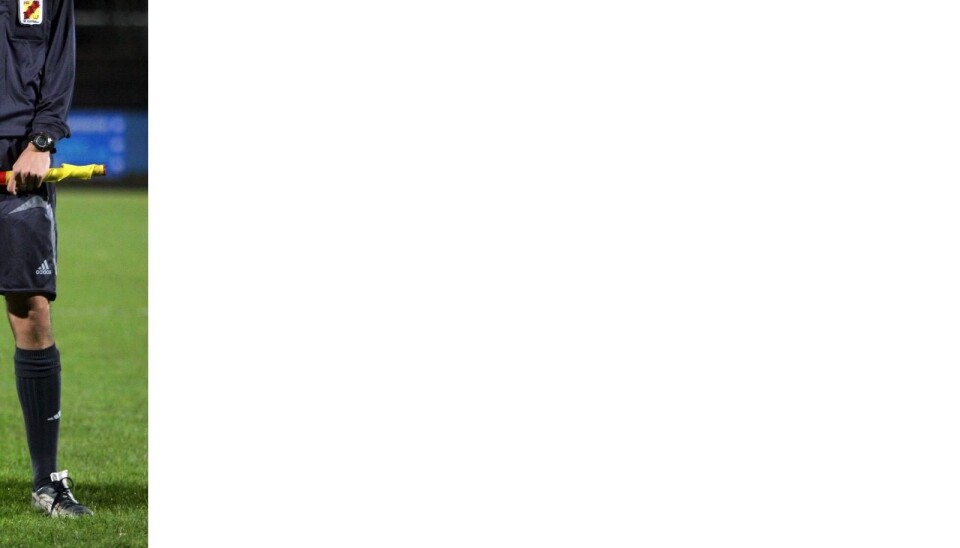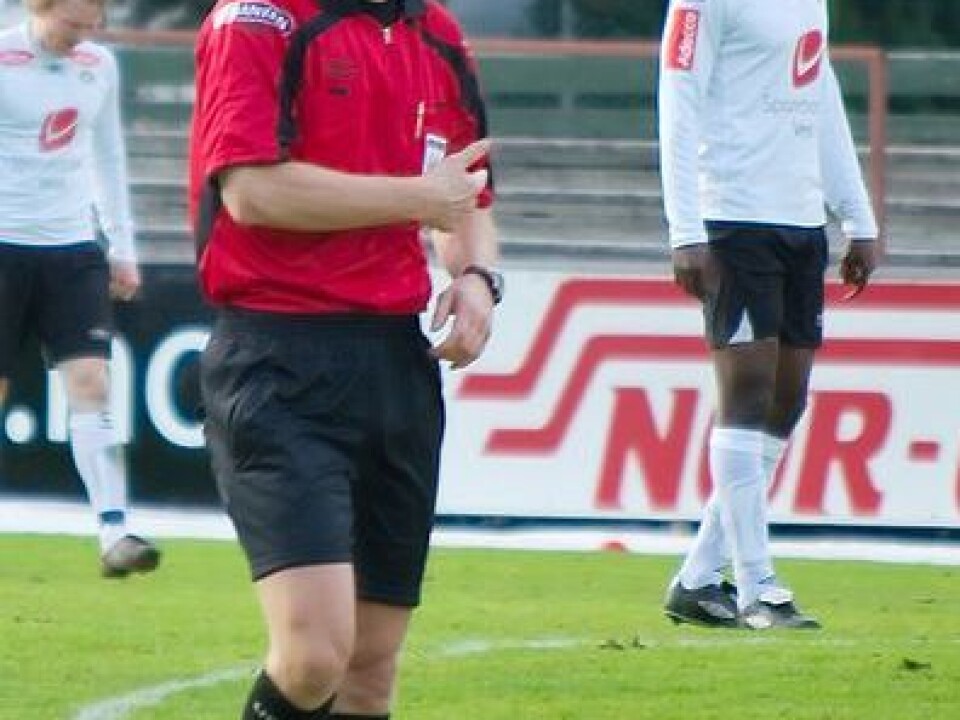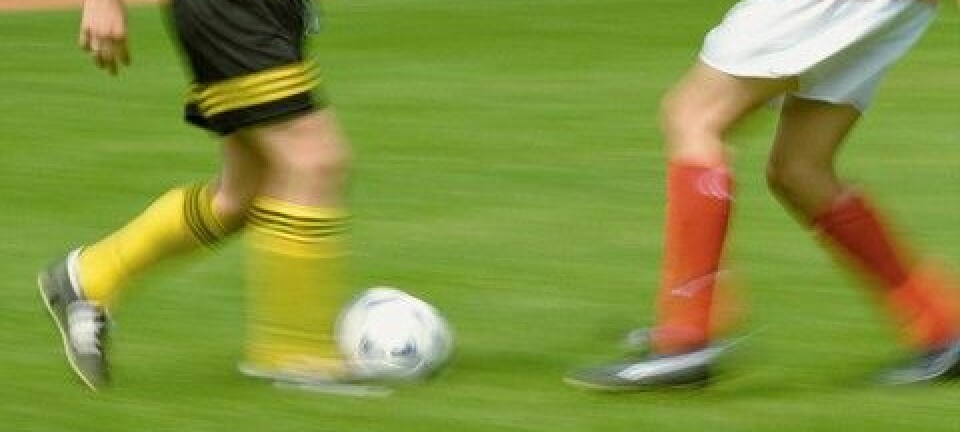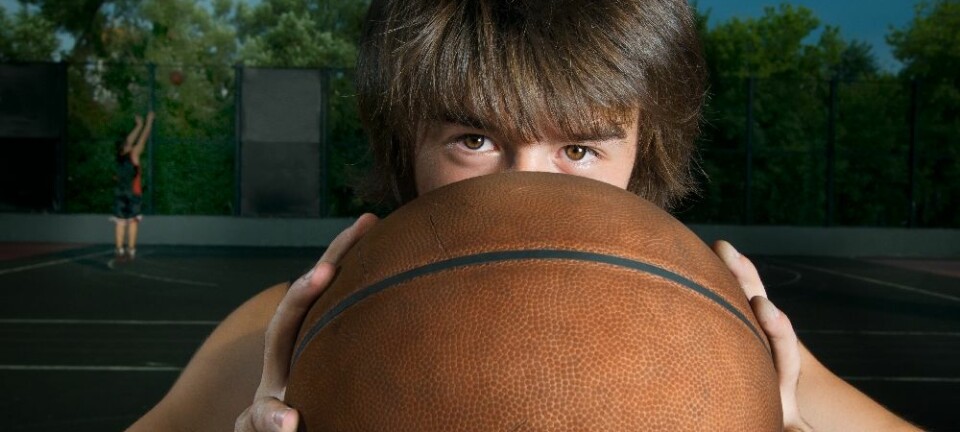
Referees are not affected by stress
Soccer referees say they are impervious to pressure from players, coaches and the crowds.
Denne artikkelen er over ti år gammel og kan inneholde utdatert informasjon.
You share the field with 22 players constantly screaming about off-sides, free kicks and yellow or red cards. Coaches and a coterie of assistants stand on the side lines telling you how how ineptly you’re doing your job.
Thousands of spectators in the stands chant insults. They invariably claim you’ve been paid off.
In TV studios technicians have their fingers poised and ready to punch replay buttons so they can reveal any error you’ve made in slow motion and high definition.
Several scientific studies have shown that the public can influence a referee to judge in favour of the home team. This effect rises with the number of home-team spectators attending and particularly in mega-arenas where the crowds are huge.

Outside pressure doesn’t have much of an impact on Norwegian soccer referees during the split second or two used to decide whether to blow their whistles and make a call they know half of everyone involved will oppose.
“These are all things I can’t do anything about. So it’s important for me to focus on what I can do – make the right decisions out on the field,” says Referee Tommy Skjerven.
This week he was the referee in the opening game in Norway’s elite league.
As stressed as the players
Skjerven and his referee colleagues are quite psyched up prior to a game.
“The stress level among referees is the same as for players and coaches or other top athletes,” says Associate Professor Bjørn Tore Johansen of the University of Agder.
He is one of the researchers behind a study of stress among top-division Norwegian soccer referees, published in International Journal of Sport and Exercise Psychology.
Nevertheless, the highest ranking Norwegian referees don’t let themselves be distracted by the roar of the crowd, the protests or aggressive behaviour.
“Although they are tense, nervous and maybe a bit apprehensive, they claim they don’t allow themselves to be influenced by the pressure around them,” says Johansen.
Researchers revealed this through a survey among referees in the elite league and adeccoliga for men and the top series for women.
“Stress is not wholly negative. On the contrary, a certain amount of stress is needed to function on such a high level. You have to prepare yourself in ways that enable you to channel this stress,” says Johansen.
He thinks the best referees are capable of doing just that. They are well-trained physically and they know all the rules down to the last footnote.
In the locker room before the game the referee team talks things out to safeguard that they tackle pressure and stress as well as possible.
“You have to train to tackle stress, just like in any other job,” adds Skjerven.
Some are more stressed
The referees in the Tippeliga report a higher stress level than their colleagues in lower leagues. They are also regarded as the best referees and are probably more skilled at withstanding the more excessive pressure they encounter from players, coaches, spectators and the media.
The biggest difference among referees in the study emerges when they are asked to evaluate their own abilities against those of their colleagues.
“Those who consider themselves among the best referees are considerably less stressed before a game,” says Johansen. “You need a solid dose of self-confidence to be a soccer referee.”
Things can go terribly wrong if you lack it.
The sports psychologist claims that referees with higher stress levels make more errors.
“If you don’t have self-confidence you get more stressed and make more mistakes. An insecure referee will be more concerned about opinion and thus more easily swayed by protests and noise from the players, coaches and spectators.”
Pre-match strategy talks
Tommy Skjerven has been a referee for many years, on the national and international level. With all the soccer fans of Norway following the season’s opening match, his stomach will be a little fluttery just before he starts the game this evening.
But Skjerven thinks he’s as ready as he can be.
“You have to prepare all you can. Train well, eat right and get to the arena with plenty of time to spare.”
“Having ample time with your fellow referees before the match starts is maybe the most important issue. We talk things over and agree on a way of handling situations before the game starts,” says Skjerven.
One thing you can wager on is that he hasn’t paid much attention to the media focus prior to the match. If he did, he could read about his prior encounters with each of the teams, probably not presented in a good light.
“In that case I have to look on the bright side and remind myself that I have been chosen to judge this particular game,” says Skjerven, with the self-confidence that the sports psychologist Johansen says is necessary for a top-notch referee.
------------------------------------
Read this article in Norwegian at forskning.no
Translated by: Glenn Ostling

































